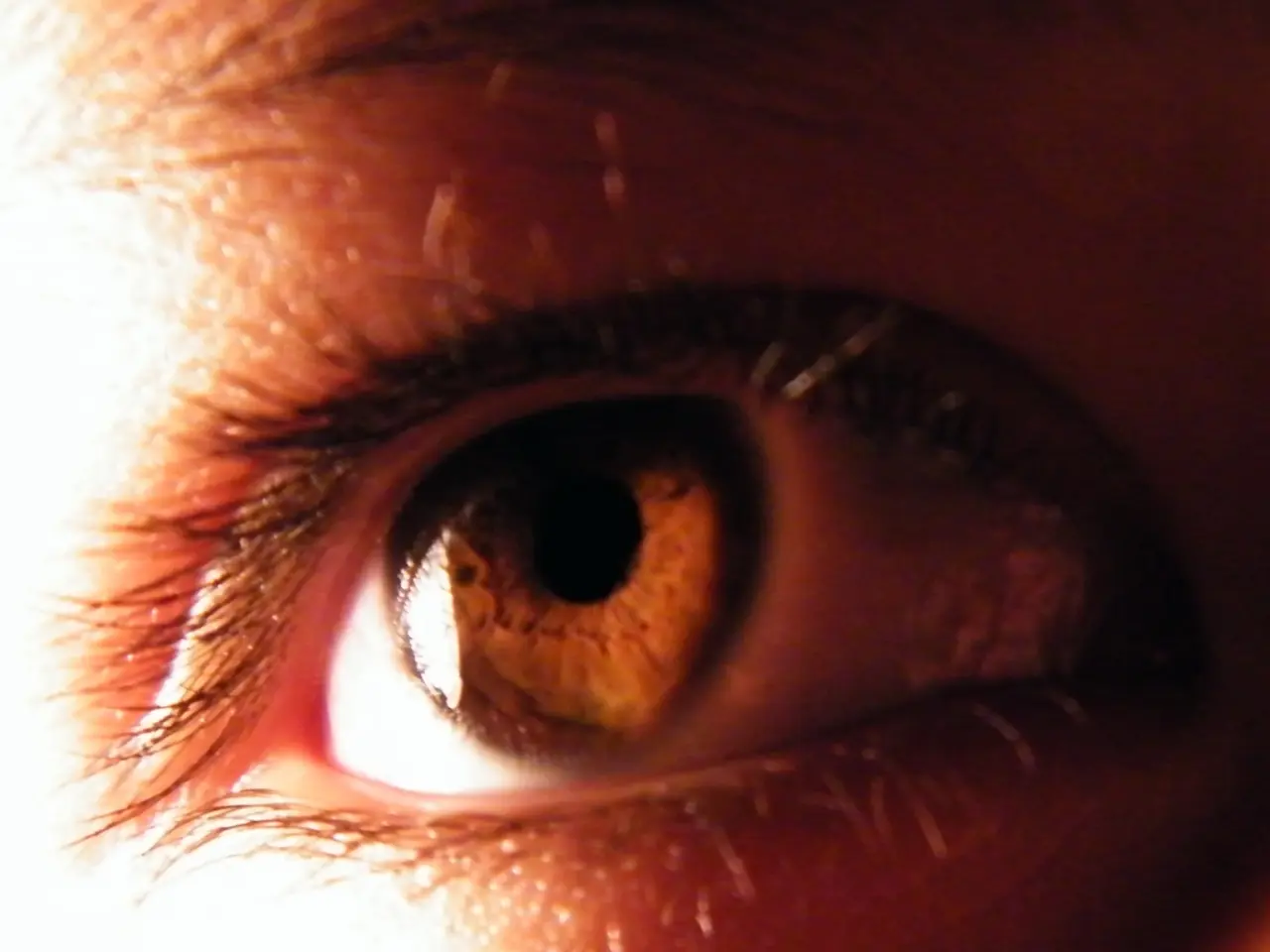Hydrogen peroxide's effectiveness against various skin ailments?
In the realm of skincare, hydrogen peroxide has long been a popular choice for those seeking to address various issues, such as acne and hyperpigmentation. However, recent guidelines from the American Academy of Dermatology (AAD) suggest that hydrogen peroxide may not be the best choice for treating acne.
The AAD strongly recommends several evidence-based treatments for acne, including benzoyl peroxide, topical retinoids, topical antibiotics, and oral doxycycline. For severe or treatment-resistant acne, oral isotretinoin is strongly recommended. Other options with conditional support include topical clascoterone, salicylic acid, azelaic acid, oral minocycline, sarecycline, contraceptives, and spironolactone [1].
Despite its popularity, hydrogen peroxide is not recommended for acne treatment due to safety concerns. The substance can slow wound healing and damage skin tissue, potentially worsening acne outcomes rather than improving them [2]. This is because hydrogen peroxide can cause skin irritation, blistering, and even severe burns, especially at concentrations of 20-30% [3].
It's essential to note that household hydrogen peroxide solutions, commonly available in concentrations of 3%, 6-10%, and up to 90%, should be used with caution. In rare cases, using hydrogen peroxide on wounds can cause a life-threatening condition called air embolism [4]. If hydrogen peroxide comes into contact with the skin, the Agency for Toxic Substances & Disease Registry advises washing the area thoroughly with soap and water [5].
When it comes to treating seborrheic keratoses, a type of noncancerous growth, the Food and Drug Administration has approved a hydrogen peroxide topical solution for use. However, doctors may not recommend treatment unless the growths resemble cancer or cause issues [6]. Alternative treatment options for seborrheic keratoses include cryotherapy, curettage, and laser removal [7].
For those seeking alternatives to hydrogen peroxide for addressing hyperpigmentation, topical creams containing azelaic acid, corticosteroids, or hydroquinone can be effective. Cosmetic procedures like laser therapy, chemical peels, or microdermabrasion can also help [8].
In summary, while hydrogen peroxide has been a popular choice for skincare, it is not recommended for acne treatment due to safety concerns. The AAD strongly recommends evidence-based topical and oral acne treatments, including benzoyl peroxide and retinoids. If you have acne or seborrheic keratoses, it's crucial to speak with a healthcare provider before using hydrogen peroxide on your skin, as they can suggest a safer and more effective approach.
References: [1] American Academy of Dermatology (2025). Guidelines of care for the management of acne vulgaris. [2] Kang S. H., Kim J. Y., & Park S. W. (2018). Hydrogen peroxide for acne. American Journal of Clinical Dermatology, 19(3), e127-e131. [3] Agency for Toxic Substances & Disease Registry (2020). Hydrogen peroxide toxicology profile. [4] National Capital Poison Center (2021). Household products: hydrogen peroxide. [5] Agency for Toxic Substances & Disease Registry (2020). Hydrogen peroxide: emergency response guide. [6] Food and Drug Administration (2019). Over-the-counter drugs: hydrogen peroxide topical solution. [7] American Academy of Dermatology (2018). Seborrheic keratoses: medically reviewed. [8] American Academy of Dermatology (2019). Hyperpigmentation: medically reviewed.
- The American Academy of Dermatology (AAD) advises against using hydrogen peroxide for acne treatment, proposing alternatives like benzoyl peroxide, topical retinoids, and oral doxycycline instead.
- In contrast, for seborrheic keratoses, a topical hydrogen peroxide solution has been approved by the Food and Drug Administration, but doctors may not recommend it unless the growths resemble cancer or cause issues.
- Household hydrogen peroxide solutions, even the 3% commonly available, should be used carefully due to potential risks like slowing wound healing, damaging skin tissue, and even causing life-threatening conditions in rare cases.
- When it comes to addressing hyperpigmentation, topical creams containing azelaic acid, corticosteroids, or hydroquinone can be more effective than hydrogen peroxide.
- Skincare science offers a wealth of evidence-based medical-conditions treatments beyond hydrogen peroxide, such as oral isotretinoin for severe acne, and cosmetic procedures like laser therapy, chemical peels, or microdermabrasion for hyperpigmentation.
- For the health and wellness of your skin, it's wise to follow the AAD's guidance, discuss your skincare concerns with a healthcare provider, and choose proven skincare products over household cleaners like hydrogen peroxide.




